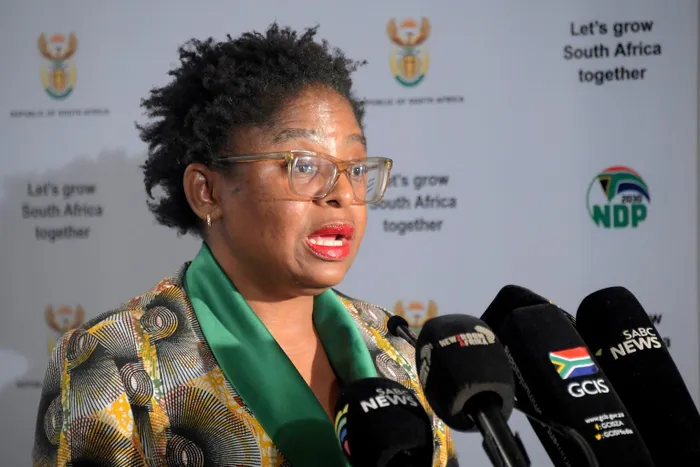
Government's firm stance against AfriForum's allegations of genocide in South Africa
Image: GCIS
In a fiery statement during the recent cabinet media briefing, Minister in the Presidency Khumbudzo Ntshavheni challenged Afriforum, the Afrikaner civil rights organisation, to clarify its plans for convincing international audiences, including white Afrikaners and S citizens, about the alleged genocide targeting white minorities in South Africa.
AfriForum has been leading an international campaign claiming genocide against white minorities in the country, prompting the US administration to accept white South Africans who are alleged victims.
Responding to questions about Afriforum’s claims, Ntshavheni emphasised the South African government’s firm stance that no genocide is occurring in the country.
“Mr. Kallie of Afriforum must clarify where the genocide is taking place,” she said.
“As the cabinet, we emphasise that there is no genocide in South Africa. How do people with citizenship and under no threat become refugees?
“How is he able to prove to the international community that a genocide is happening, when even international bodies have dismissed these claims as false?”
Ntshavheni further reiterated the government’s commitment to safeguarding national security.
“The State Security Agency is gathering information to identify those spreading falsehoods about our country,” she stated, indicating a proactive approach to counter misinformation.
The dispute between the government and AfriForum has been ongoing, with the organisation claiming that white farmers and minorities face targeted violence and persecution, allegations the government strongly denies.
The government also addressed the recent US decision to grant refugee status to a group of South Africans of Afrikaner descent, which Pretoria considers based on misinformation.
“The decision by the United States to confer refugee status on this group is misguided,” Ntshavheni asserted.
“They do not meet the definition of refugees set out in the 1951 Refugee Convention and its 1967 Protocol.”
She elaborated that the allegations of discrimination and violence are unfounded.
“The South African Police Service’s statistics on farm-related crimes do not support claims of widespread violence or genocide targeted at farmers or any racial group,” she added.
The cabinet expressed openness to dialogue but rejected “alarmist narratives.”
“We remain open to constructive engagement to foster mutual understanding on these issues,” Ntshavheni said, emphasising the importance of factual discourse.
Meanwhile, AfriForum has raised concerns that the government’s focus on monitoring and potentially prosecuting organisations based on their international engagements could undermine democratic freedoms.
Afriforum leader, Kallie Kriel, accused the government of adopting undemocratic tactics.
“The Presidency now seems to be resorting to actions reminiscent of oppressive regimes to silence dissenting voices,” Kriel stated.
“This threatens civil liberties and risks damaging South Africa’s reputation on the international stage.”
As tensions continue to simmer, the debate over the existence of genocide and the treatment of minorities in South Africa remains a contentious issue, drawing sharp lines between government officials and civil society organisations on the global stage.
thabo.makwakwa@inl.co.za
IOL Politics
Related Topics: